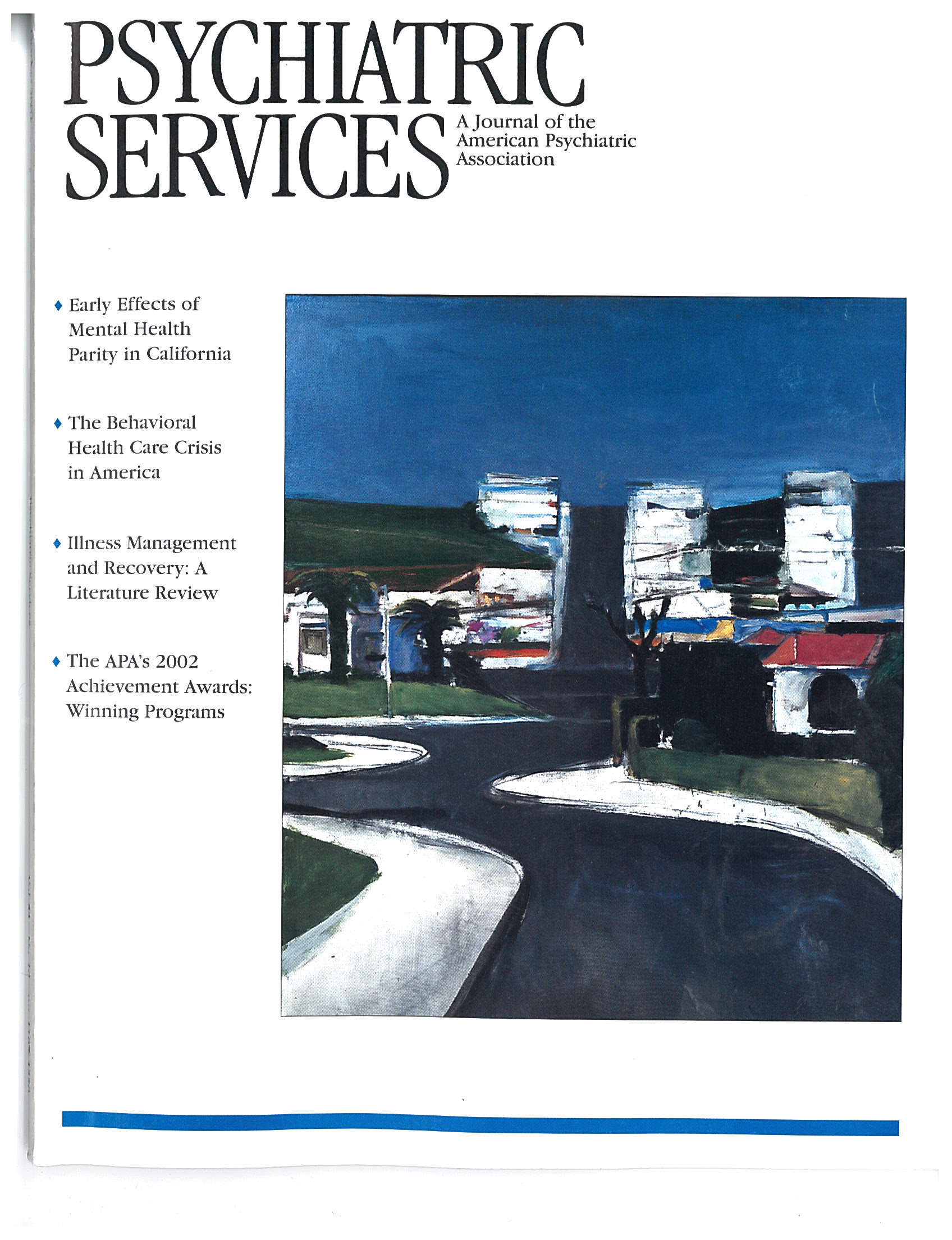Insight Into Illness and Attitudes Toward Medications Among Inpatients With Schizophrenia
Abstract
This study assessed symptoms, severity of illness functional level, insight into illness, and attitudes toward medication in a sample of psychiatric patients who were newly admitted to a state hospital. The patients were evaluated before and after treatment with atypical, conventional, or mixed (atypical plus conventional) antipsychotic medication regimens with the Brief Psychiatric Rating Scale (BPRS), the Clinical Global Impression, the Global Assessment of Functioning, the Scale to Assess Unawareness of Mental Disorder, and the Drug Attitude Inventory. Overall, the patients showed significant improvement in symptoms, severity of illness, functional level, and insight into their illness during the course of hospitalization. Their attitudes toward medications changed minimally during treatment. Only the patients who were treated with conventional antipsychotics showed significant improvement in their attitudes toward medication. However, the change was not large enough to differentiate the conventional antipsychotic treatment group from the other treatment groups.



